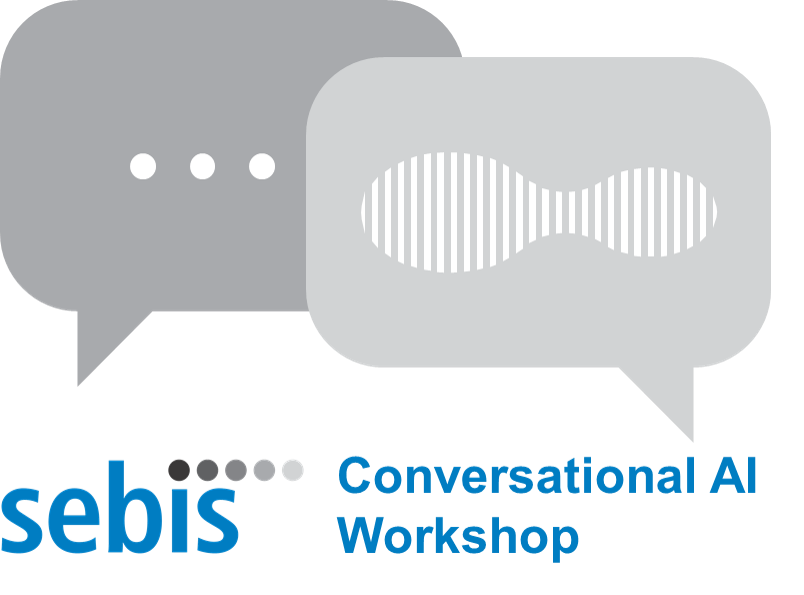
Important note: During the SS 23 we offer a revised, full lab course SEBA Lab (NLP). If you are interested in participating, please contact the organizer: Phillip Schneider
Since the dawn of Artificial Intelligence as a research discipline, building intelligent systems that can interact with humans via natural language has been a highly ambitious goal. One specific type of natural language interfaces are dialog systems or conversational agents. The latter aim at emulating multi-turn conversations with humans. However, they often have only limited functionality and suffer the challenges of understanding ambiguous and complex inputs. Recent advancements in Machine Learning for Natural Language Processing improved the capabilities of conversational interfaces substantially. This led to an increasing adoption of chatbots, voice-based assistants, and other types of conversational agents. The ongoing pandemic has caused blooming digitization and introduction of such conversational agents to numerous sectors, including customer services, human resources, public administration, and healthcare.
In the foreseeable future, conversational interfaces will radically transform the way we interact with computers in our daily lives. The goal of the Conversational AI Workshop is to provide an overview of the design and development of conversational agents, especially voice-based agents. Through the hands-on implementation experience, workshop participants gain insights into various Natural Language Processing techniques that must be skillfully combined in in such dialog systems.
The sebis Conversational AI Workshop is a complementary part of the NLP Seminar (Natural Language Processing - Methods and Applications). It is designated for teams of 2-4 students with varying background knowledge. The goal is to create a conversational agent for purely voice-based interactions. The agent should be able to hold a conversations with humans about a given topic domain. Teams who successfully participated in the workshop are awarded with grade points for the NLP seminar, get a certificate of participation, and can increase their chances of writing a NLP-related thesis at the sebis Chair. While this workshop is meant for the participants of the NLP seminar, other students from TUM can also attend it.

Upon successful completion of the workshop, participants understand essential concepts, algorithms, and architectures of conversational user interfaces. Furthermore, they can apply their theoretic knowledge by building a functional conversational agent system. Participants get hands-on experience in building conversational interfaces with state-of-the-art tools and learn how to deal with challenges that arise in particular for purely voice-based systems. As conversational user interfaces integrate a number of different NLP techniques (e.g., information extraction like NER, information retrieval, topic classification, or natural language generation), this workshop is a practical addition to the theoretic course content of the NLP seminar.
The workshop would include an introductory exercise session about the development of conversational user interfaces. During this session, the students will get acquainted with the technology stack and also get familiar with design principles. After the workshop, the students will form groups of 2-4 members depending on the selected topic (skill). The teams would then have 4 weeks to build their agent. All teams are supposed to work autonomously but can request guidance from the NLP seminar supervisors at any time. A Q&A page will be made available to the students on Moodle where they can submit questions. In the end, each conversational agent is evaluated with regard to the quality of the technical implementation and the dialog design. For successful participation, the agent has to fulfill a list of minimum requirements. Upon successful completion of the challenge, team members will get a 0.3 grade bonus in the NLP seminar and a certificate of participation from the chair.